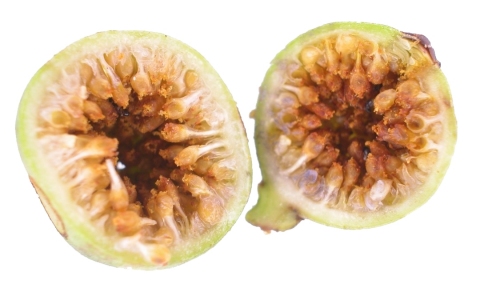Ficus paraensis
(Miq.) Miq.
Moraceae
Ficus arukensis Standl.
Ficus haughtii Standl.
Ficus hydrophila Pittier
Ficus manabiensis C.C.Berg
Ficus myrmecophila Warb.
Ficus orinocensis Pittier
Ficus panamensis Standl.
Ficus peroblonga Dugand
Ficus putumayonis Dugand
Ficus thelephora Benoist
Ficus uberrima Standl.
Ficus williamsii (Rusby) Rossberg
Urostigma paraense Miq.
Urostigma williamsii Rusby
Common Name:
General Information
Ficus paraensis is a small to medium-sized tree[
453- Title
- Woods of Northeastern Peru
- Publication
-
- Author
- Williams L.
- Website
- http://www.biodiversitylibrary.org/
- Publisher
- Field Museum Press; Chicago.
- Year
- 1936
- ISBN
-
- Description
- Gives information on the properties of the wood of well over 1,000 species of woody plants from northeastern Peru. Can be downloaded from the Internet.
].
The tree is sometimes harvested from the wild for local medicinal use.
Known Hazards
None known
Botanical References
Range
S. America - Brazil, Bolivia, Peru, Ecuador, Colombia, Venezuela, the Guyanas; C. America - Panama to Guatemala.
Habitat
Young coastal plain, swamp forest, savannah and savannah forests[
422- Title
- Fruits of the Guianan Flora
- Publication
-
- Author
- van Roosmalen. M.G.M.
- Publisher
- Institute of Systematic Boyany, Utrecht University; Netherlands.
- Year
- 1985
- ISBN
- 90-9000988-4
- Description
- Terse descriptions of over 1,700 species from the Guianas that bear fruits - not necessarily edible! Often mentions if the fruit is edible, plus gives brief description of habit and habitat.
]. At elevations up to 600 metres[
453- Title
- Woods of Northeastern Peru
- Publication
-
- Author
- Williams L.
- Website
- http://www.biodiversitylibrary.org/
- Publisher
- Field Museum Press; Chicago.
- Year
- 1936
- ISBN
-
- Description
- Gives information on the properties of the wood of well over 1,000 species of woody plants from northeastern Peru. Can be downloaded from the Internet.
].
Properties
| Medicinal Rating |      |
| Habit | Tree |
| Height | 0.00 m |
| Pollinators | Wasps |
| Cultivation Status | Wild |
Cultivation Details
Fig trees have a unique form of fertilization, each species relying on a single, highly specialized species of wasp that is itself totaly dependant upon that fig species in order to breed. The trees produce three types of flower; male, a long-styled female and a short-styled female flower, often called the gall flower. All three types of flower are contained within the structure we usually think of as the fruit.
The female fig wasp enters a fig and lays its eggs on the short styled female flowers while pollinating the long styled female flowers. Wingless male fig wasps emerge first, inseminate the emerging females and then bore exit tunnels out of the fig for the winged females. Females emerge, collect pollen from the male flowers and fly off in search of figs whose female flowers are receptive. In order to support a population of its pollinator, individuals of a Ficus spp. must flower asynchronously. A population must exceed a critical minimum size to ensure that at any time of the year at least some plants have overlap of emmission and reception of fig wasps. Without this temporal overlap the short-lived pollinator wasps will go locally extinct[
413- Title
- Global Invasive Species Database
- Publication
-
- Author
-
- Website
- http://www.issg.org/database/welcome/
- Publisher
-
- Year
- 0
- ISBN
-
- Description
- Very detailed information on almost 400 species (with more being added) of plants that have become weeds in areas outside their native range.
].
Edible Uses
None known
Medicinal
The powdered ash of burned young stems is ingested as a treatment for children's diarrhoea[
348- Title
- Medicinal Plants of the Guianas
- Publication
-
- Author
- DeFilipps, R. A.; Maina, S. L.; & Crepin, J.
- Website
- http://botany.si.edu/bdg/medicinal/index.html
- Publisher
- Smithsonian Museum
- Year
- 0
- ISBN
-
- Description
- A down-loadable PDF document of a book in pre-publication awaiting illustration. An excellent, if rather terse, guide to the traditional medicinal uses of the plants of the region
].
The latex is used as a vermifuge[
348- Title
- Medicinal Plants of the Guianas
- Publication
-
- Author
- DeFilipps, R. A.; Maina, S. L.; & Crepin, J.
- Website
- http://botany.si.edu/bdg/medicinal/index.html
- Publisher
- Smithsonian Museum
- Year
- 0
- ISBN
-
- Description
- A down-loadable PDF document of a book in pre-publication awaiting illustration. An excellent, if rather terse, guide to the traditional medicinal uses of the plants of the region
].
The latex is applied topically in the treatment of sprains, wounds and cuts[[
348- Title
- Medicinal Plants of the Guianas
- Publication
-
- Author
- DeFilipps, R. A.; Maina, S. L.; & Crepin, J.
- Website
- http://botany.si.edu/bdg/medicinal/index.html
- Publisher
- Smithsonian Museum
- Year
- 0
- ISBN
-
- Description
- A down-loadable PDF document of a book in pre-publication awaiting illustration. An excellent, if rather terse, guide to the traditional medicinal uses of the plants of the region
].
Other Uses
None known
Propagation
Seed -
If you have any useful information about this plant, please leave a comment. Comments have to be approved before they are shown here.







 Useful Tropical Plants Database 2014 by
Ken Fern,
web interface by
Ajna Fern
with help from
Richard Morris.
Useful Tropical Plants Database 2014 by
Ken Fern,
web interface by
Ajna Fern
with help from
Richard Morris.